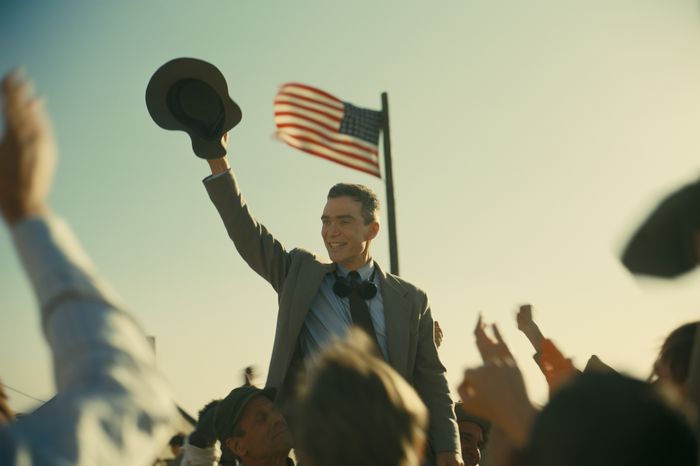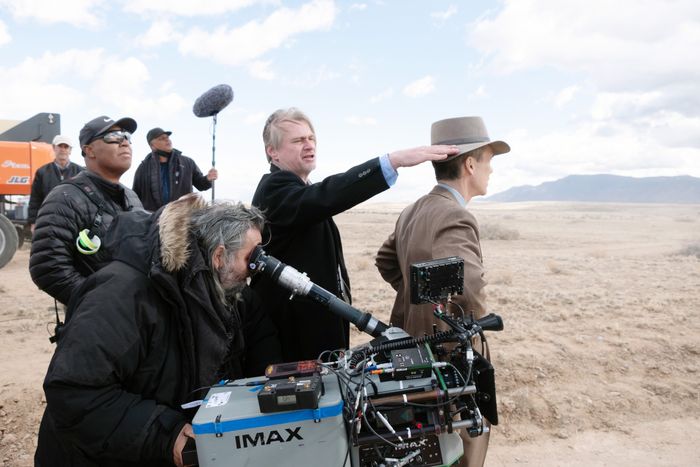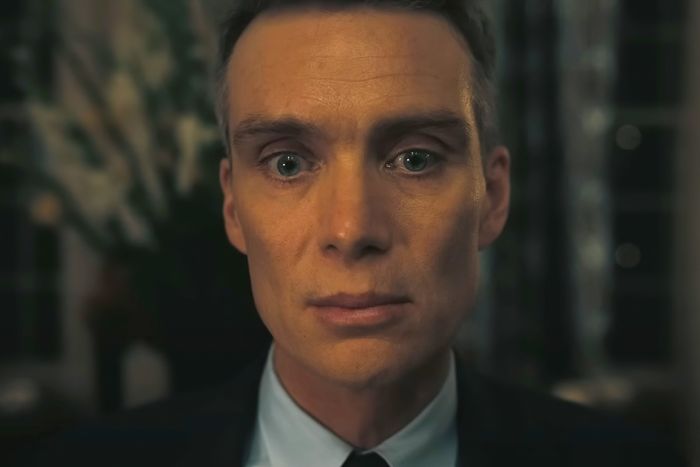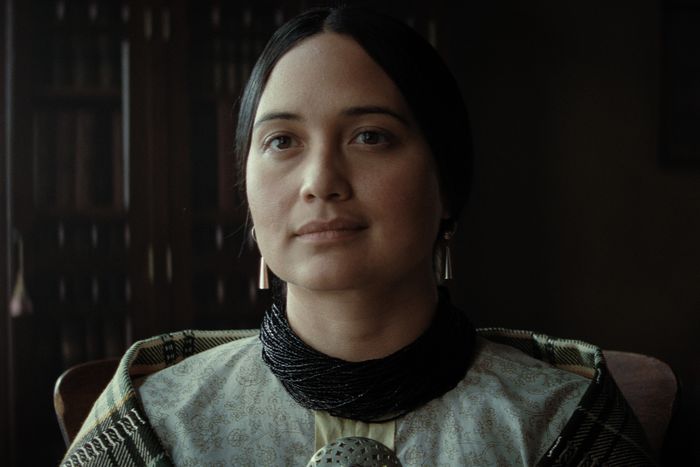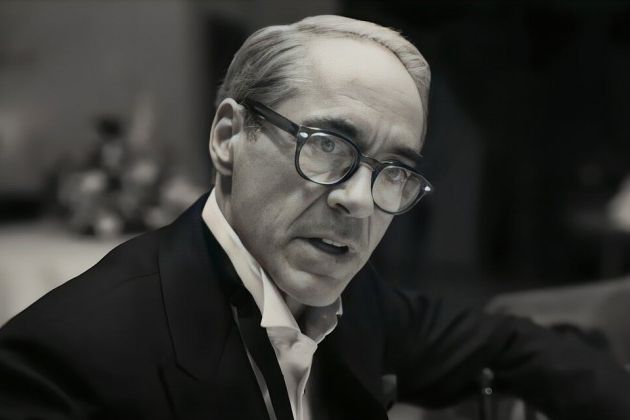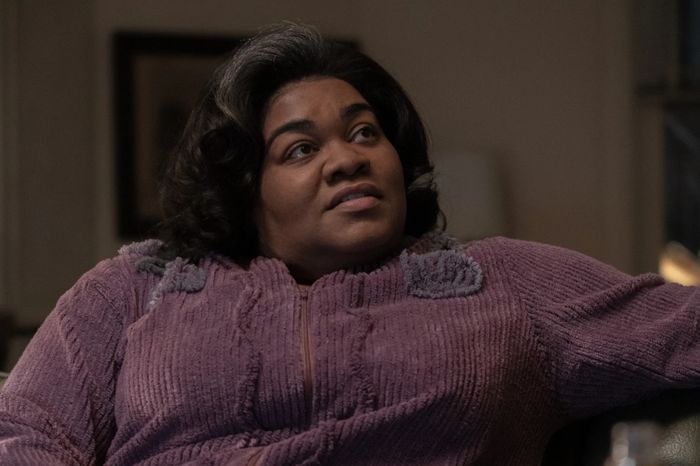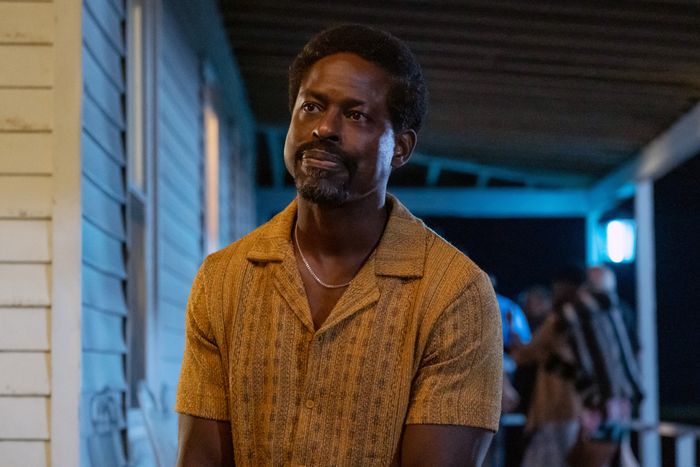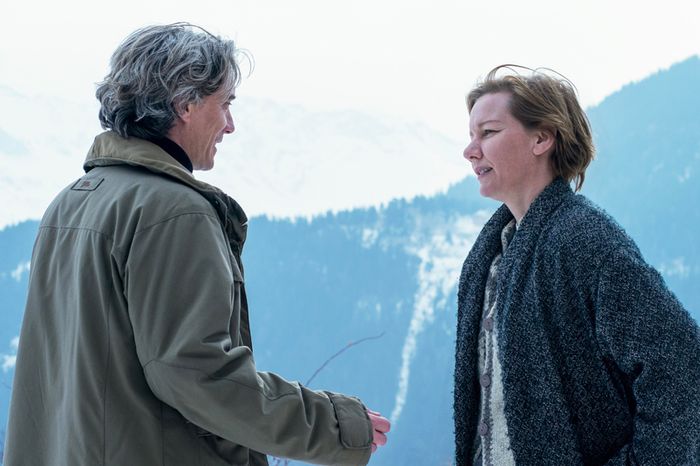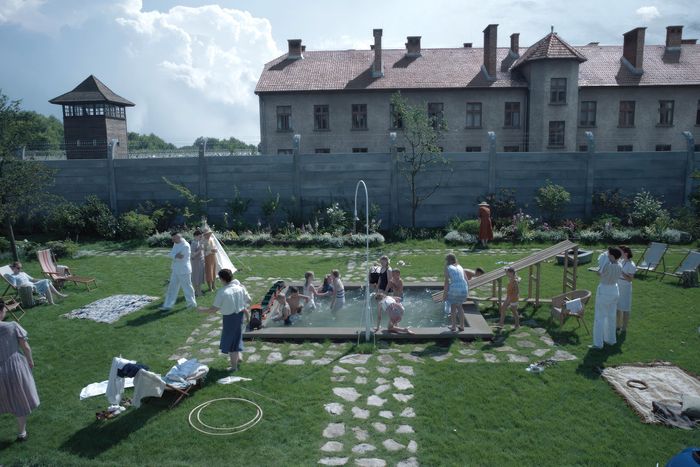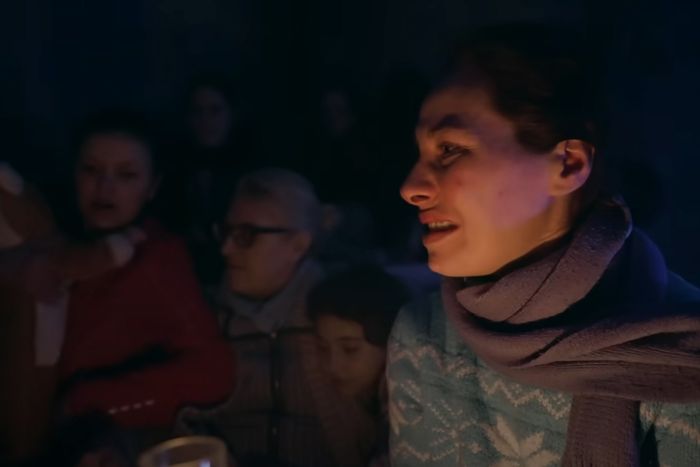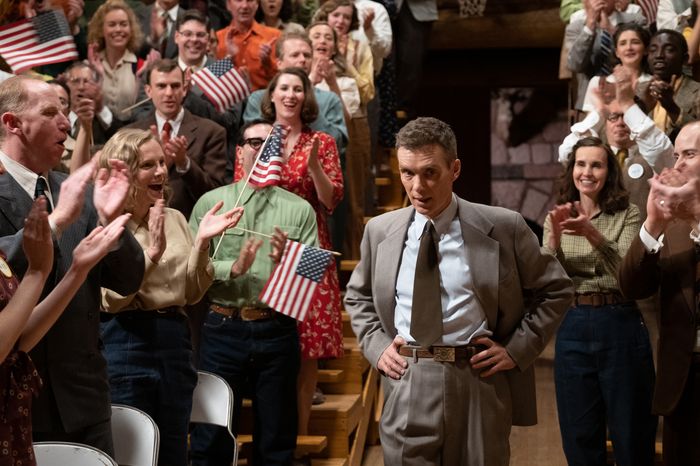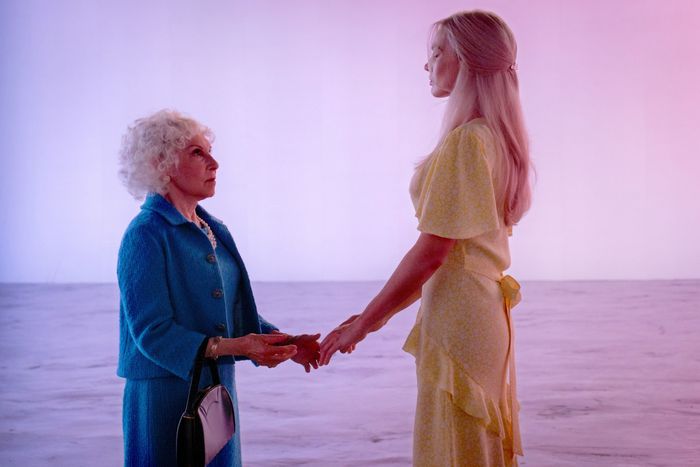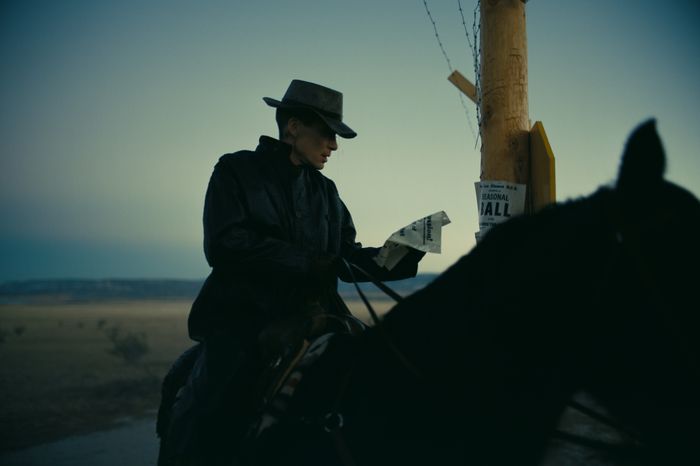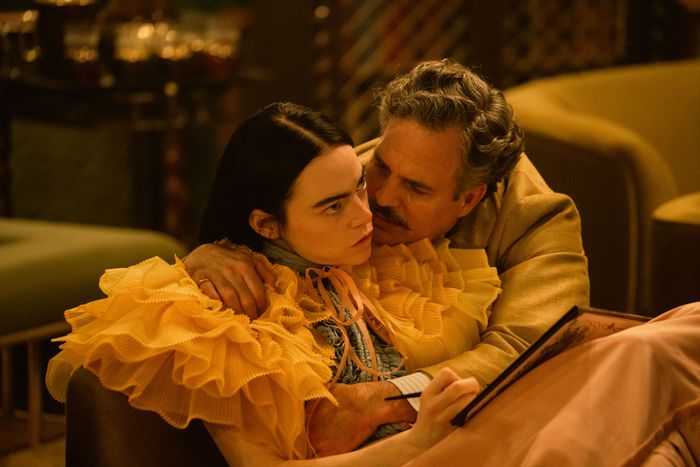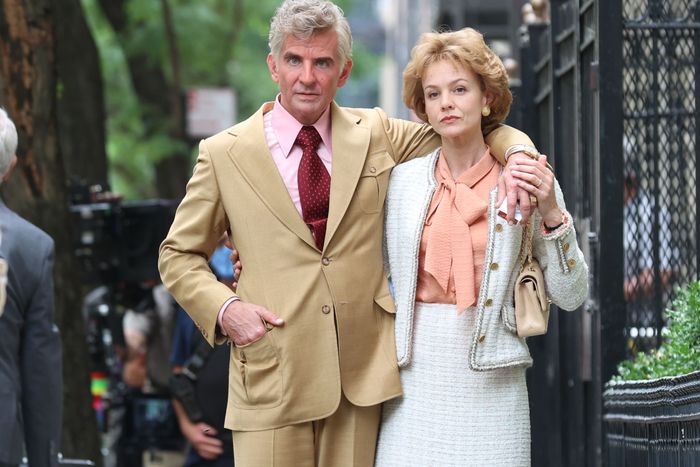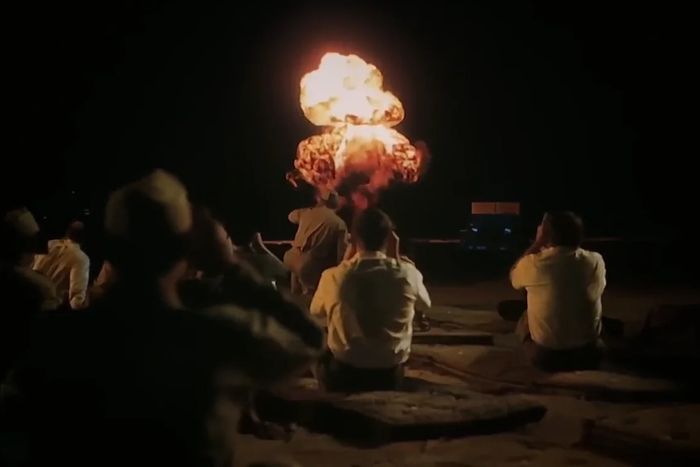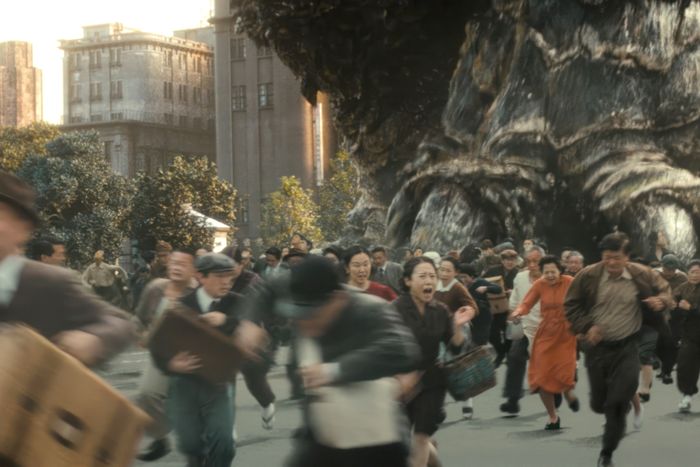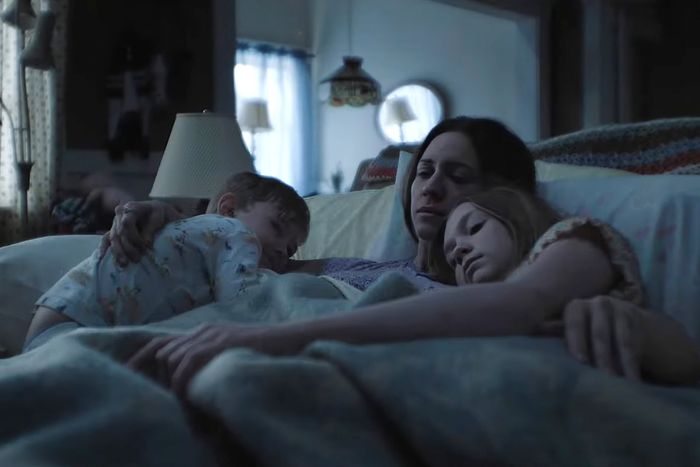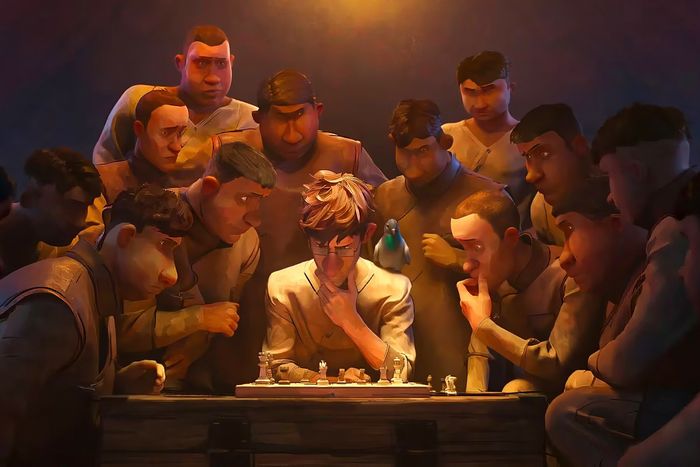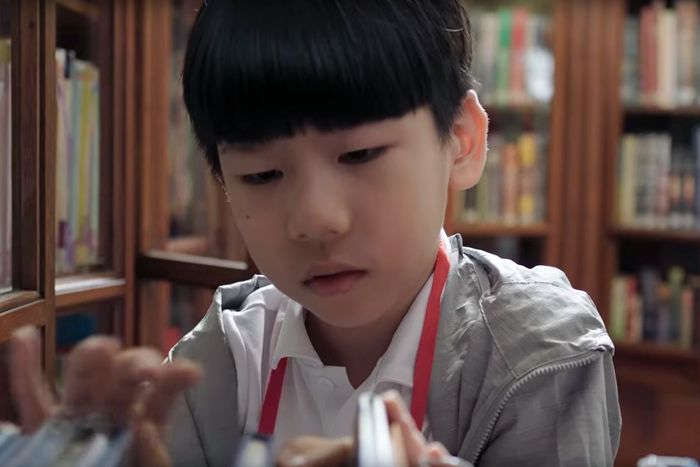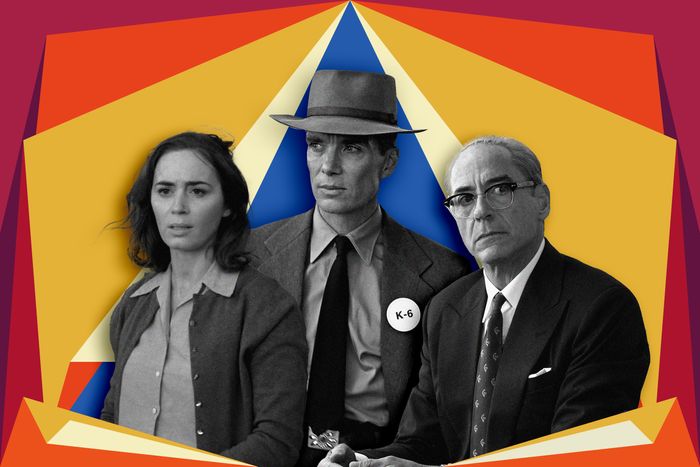
If you followed the Oscars in the 2010s, the dawn of the preferential-ballot era, you had a pretty good idea of the way things would go. Wins would be spread around between the Best Picture nominees. The Best Picture race would go down to the wire, and the runner-up there would often win Director. The nightÔÇÖs big winners would go home with only four or five trophies.
All that has changed. Last year, Everything Everywhere All at Once snatched almost every precursor prize before taking seven trophies on the big night. It was the most formidable contender weÔÇÖd seen in over a decade ÔÇö and Oppenheimer is poised to be even bigger. In the run-up to SundayÔÇÖs Oscars, Christopher NolanÔÇÖs film won every precursor EEAAO did, plus the two it didnÔÇÖt, the Globe and the BAFTA. On nomination morning, Oppenheimer scored 13 nods, one shy of tying the all-time record. These are Return of the King numbers.
In one sense, that means weÔÇÖre in for a not especially suspenseful night. Oppenheimer is going to win handily all over the ballot. ThereÔÇÖs a significant chance it will end the ceremony as the most awarded film since Slumdog Millionaire 15 years ago. But it also means that, if you want to get an edge in your Oscar pool, youÔÇÖll have to pay attention to the margins. Where can you bet against Oppenheimer, and where should you really, really not? Which way will the non-Oppie crafts lean? And which Shorts races could see a shocking upset? (To the extent that Shorts races can have shocking upsets.)
Even if many major categories look likely to go chalk, I was still sweating many of my picks until the 11th hour. Nevertheless, here are my final predictions for the 96th Academy Awards.
Best Picture
American Fiction
Anatomy of a Fall
Barbie
The Holdovers
Killers of the Flower Moon
Maestro
Oppenheimer
Past Lives
Poor Things
The Zone of Interest
An eternal debate rages within the awards community: Should the Oscars do more to reward movies that appeal to mainstream audiences, or should they hold the line and honor the best films of the year regardless of how small or esoteric? For one season at least, Oppenheimer made the whole discussion moot. This is a three-hour art film about nuclear physics that was also one of the biggest hits of the year, a morally rigorous drama that climaxed with a big-ass explosion, a Great Man biopic and a World War II movie and a feast for meme-addled teens. Despite being pegged as the front-runner since last summer, itÔÇÖs never faltered, and no credible alternative has ever arrived. To borrow a phrase, itÔÇÖs won everything, everywhere, all at once, and itÔÇÖs going to win a lot more on Sunday.
Best Director
Jonathan Glazer, The Zone of Interest
Yorgos Lanthimos, Poor Things
Christopher Nolan, Oppenheimer
Martin Scorsese, Killers of the Flower Moon
Justine Triet, Anatomy of a Fall
ItÔÇÖs been years since we had a suspenseful Best Director race, and weÔÇÖre not starting again now. Like many filmmakers before him, Christopher Nolan had to endure some cold shoulders and false starts in his relationship with Oscar, but heÔÇÖll be welcomed into the club with open arms. Nolan may not be the only guy in Hollywood who could have made an Oppenheimer biopic, but heÔÇÖs the only guy who could make an Oppenheimer biopic one of the biggest films of the year.
Best Actor
Bradley Cooper, Maestro
Colman Domingo, Rustin
Paul Giamatti, The Holdovers
Cillian Murphy, Oppenheimer
Jeffrey Wright, American Fiction
Cillian Murphy did not enter this race as the front-runner, but the Nolan mainstay pulled away from rival Paul Giamatti over the seasonÔÇÖs closing stretch. Academy voters are often guilty of rewarding the most acting; that they seem ready to award MurphyÔÇÖs performance is a victory for stillness and silence.
Best Actress
Annette Bening, Nyad
Lily Gladstone, Killers of the Flower Moon
Sandra H├╝ller, Anatomy of a Fall
Carey Mulligan, Maestro
Emma Stone, Poor Things
The other three acting races feel sewn-up, but Best Actress will likely be decided by the slimmest of margins. A victory for Emma Stone would be a degree-of-difficulty prize, crowning her as the most daring and technically accomplished star of her generation. A victory for Lily Gladstone would herald the arrival of an exciting new talent and make Gladstone the first Native American performer to win an acting Oscar. After splitting the Golden Globes, both women have taken home precursor trophies: Stone at CriticsÔÇÖ Choice and BAFTA, Gladstone at SAG. Ultimately, I predict that voters will embrace the opportunity for a history-making win. The spontaneous eruption of emotion every time the Killers of the Flower Moon actress takes the podium, combined with the fact that Stone has won before, tilts me toward Lily Gladstone.
Best Supporting Actor
Sterling K. Brown, American Fiction
Robert De Niro, Killers of the Flower Moon
Robert Downey Jr., Oppenheimer
Ryan Gosling, Barbie
Mark Ruffalo, Poor Things
Fission and fusion. Art and commerce. Oppenheimer married these supposed opposites and so did Robert Downey Jr. in his grand return to serious acting. Coming back from earning millions of dollars for playing Iron Man isnÔÇÖt quite as heart-tugging a narrative as those that powered past winners Troy Kotsur and Ke Huy Quan, but I suspect many Academy members can relate to Downey Jr.ÔÇÖs desire to reprioritize work he truly cares about. (Besides, the actor had a comeback of his own before joining the MCU.) IÔÇÖd say RDJ sealed the deal with a series of charismatic acceptance speeches, but in truth this race has been done and dusted since July.
Best Supporting Actress
Emily Blunt, Oppenheimer
Danielle Brooks, The Color Purple
America Ferrera, Barbie
Jodie Foster, Nyad
DaÔÇÖVine Joy Randolph, The Holdovers
How would this race have played out had Lily Gladstone decided to run in Supporting Actress, as many pundits predicted? For one, it likely would have left us with an all-white Actress field at the same time the Supporting five was mostly women of color, which would not have been great. In a weakened Supporting Actress field, DaÔÇÖVine Joy RandolphÔÇÖs grief-stricken mother has swept the season like the ÔÇÖ72 Dolphins, winning prizes from the smallest critics groups and the biggest of guilds alike.
Best Adapted Screenplay
Cord Jefferson, American Fiction
Greta Gerwig and Noah Baumbach, Barbie
Tony McNamara, Poor Things
Christopher Nolan, Oppenheimer
Jonathan Glazer, The Zone of Interest
American Fiction has won the bulk of the precursor honors, but its BAFTA win was particularly notable: Not only did Cord Jefferson beat Nolan on his home turf, but he did so on a night Fiction had no other nominations, and with the voting body least likely to reward a film about the trials of an upper-middle-class Black family. However, the addition of Barbie, which ran in Original at the precursors, makes this race hard to predict. Voters still smarting from BarbieÔÇÖs Oscar snubs could hand it a make-good prize here (though personally I think the backlash-to-the-backlash has overpowered the actual backlash at this point). And donÔÇÖt discount the fact that, when a film sweeps the precursors the way Oppenheimer did, it tends to win Picture, Director, and Screenplay, too. Still, Fiction so fits the mold of a typical Screenplay winner ÔÇö a small, dialogue-driven film from an up-and-coming filmmaker ÔÇö that I think the underdog will prevail.
Best Original Screenplay
Justine Triet and Arthur Harari, Anatomy of a Fall
David Hemingson, The Holdovers
Bradley Cooper and Josh Singer, Maestro
Samy Burch, May December
Celine Song, Past Lives
Once Barbie moved to Adapted, this category looked like a three-way sprint between Anatomy of a Fall, The Holdovers, and Past Lives. But that close race never materialized. With Anatomy of a Fall looking unlikely to be recognized anywhere else, voters have come to the consensus that Screenplay is the place to reward Justine TrietÔÇÖs feminist legal thriller. ThatÔÇÖs a fitting prize for a film where so much drama hinges on the nuances of a single word.
Best International Feature
Io Capitano, Italy
Perfect Days, Japan
Society of the Snow, Spain
The TeacherÔÇÖs Lounge, Germany
The Zone of Interest, United Kingdom
When Jonathan Glazer goes up to accept this trophy, will he thank Emmanuel Macron? Almost certainly not, but consider this: Had the French president not pushed through a controversial pension-reform bill last spring, then Justine Triet would not have devoted part of her Palme dÔÇÖOr acceptance speech to slamming the law. And if she didnÔÇÖt trash Macron, then the bigwigs in the French film industry would not have side-eyed her speech (as the scuttlebutt goes) on the grounds that her film had been partially funded by his government. If those Gallic gatekeepers hadnÔÇÖt been annoyed with Triet, then France might not have submitted The Taste of Things over Anatomy of a Fall. And if this category thus had two Best Picture nominees instead of one, we might have seen Anatomy raising this trophy instead. As it stands, The Zone of Interest, the most depressingly timely contender of the season, will take home the gold with a minimum of drama. And it was all thanks to neoliberalism.
Best Documentary Feature
Bobi Wine: The PeopleÔÇÖs President
The Eternal Memory
Four Daughters
To Kill a Tiger
20 Days in Mariupol
Because IÔÇÖm based in New York, the Academy voters I cross paths with are disproportionately members of the documentary branch. Which means I get to hear the other side of the periodic grumblings over the doc branch snubbing populist contenders like American Symphony: They think the rest of the Academy has simply terrible taste in documentaries! (When you consider it was the wider membership who voted for My Octopus Teacher, they may have a point.) This yearÔÇÖs lineup is noteworthy for featuring five international efforts, with one clear front-runner: 20 Days in Mariupol, a harrowing piece of reportage from the Ukrainian city caught in the first wave of the Russian invasion, which is of a piece with last yearÔÇÖs winner, Navalny. In a season where many in Hollywood have struggled with the proper response to the Israel-Hamas conflict, the war in Ukraine may allow for a more comfortable display of humanitarianism.
Best Animated Feature
The Boy and the Heron
Elemental
Nimona
Robot Dreams
Spider-Man: Across the Spider-Verse
For much of the season, this race was neck-and-neck between Across the Spider-Verse and Boy and the Heron. Both would be clear standouts in another year, and both are following past Animated Feature winners. (Hayao Miyazaki took it home for Spirited Away, and he might have more trophies if this category was created earlier than 2001.) Heron has the narrative advantage of possibly being MiyazakiÔÇÖs final film, but Spider-VerseÔÇÖs strong finish at the PGAs and Annie Awards has me convinced itÔÇÖs strong enough to overcome concerns about only being half a movie.
Best Film Editing
Anatomy of a Fall
The Holdovers
Killers of the Flower Moon
Oppenheimer
Poor Things
Another trophy to the front-runner, for making a difficult task look easy. Editor Jennifer Lame ensures OppenheimerÔÇÖs nested-flashback structure is always easy to follow, and the film moves surprisingly briskly for a three-hour drama about scientists talking.
Best Original Song
ÔÇ£What Was I Made For?ÔÇØ, Billie Eilish and Finneas, Barbie
ÔÇ£IÔÇÖm Just Ken,ÔÇØ Mark Ronson and Andrew Wyatt, Barbie
ÔÇ£The Fire Inside,ÔÇØ Diane Warren, FlaminÔÇÖ Hot
ÔÇ£It Never Went Away,ÔÇØ Jon Batiste, American Symphony
ÔÇ£Wahzhazhe (A Song for My People),ÔÇØ Osage Tribal Singers, Killers of the Flower Moon
There are no boppenheimers in this yearÔÇÖs field, which makes Original Song the place we finally get our Barbie party. But which of the two nominees will take it? While the viewing public seems to prefer the rousing power ballad ÔÇ£IÔÇÖm Just Ken,ÔÇØ awards voters nearly always gravitate towards the more emotional number. ÔÇ£What Was I Made For?ÔÇØ will get an Oscar to add to its Grammy and Globe, and 22-year-old Billie Eilish will become the youngest-ever two-time winner.
Best Original Score
American Fiction
Indiana Jones and the Dial of Destiny
Killers of the Flower Moon
Oppenheimer
Poor Things
Holy arpeggio! Like any Christopher Nolan film, Oppenheimer leans heavily on an imposing wall of sound, and its front-runner status means Ludwig G├Âransson is all but assured of his second Oscar.
Best Cinematography
El Conde
Killers of the Flower Moon
Maestro
Oppenheimer
Poor Things
Since you canÔÇÖt have NolanÔÇÖs vision without Hoyte van HoytemaÔÇÖs expansive Imax cinematography, the Dutch-Swedish DP joins his Oppenheimer director in being earmarked for Oscar ÔÇö especially as the film didnÔÇÖt get nominated in Visual Effects, making this the category to reward the breathtaking Trinity Test sequence.
Best Costume Design
Barbie
Killers of the Flower Moon
Napoleon
Oppenheimer
Poor Things
Which fantastical feminist awakening will rule the craft categories? Barbie and Poor Things both won prizes from the Costume Designers Guild, with the latter taking the honor at BAFTA. ItÔÇÖs close, but IÔÇÖm inclined to go with Poor Things. Though clothes play a crucial role in BarbieÔÇÖs plot, just like past winners Phantom Thread and Cruella, Oscar voters have otherwise shown a clear preference for period fashions in this category.
Best Makeup & Hairstyling
Golda
Maestro
Oppenheimer
Poor Things
Society of the Snow
Even more than the acting categories, Makeup & Hairstyling is all about the transformation. For Oscar voters, thereÔÇÖs no higher art than making a famous person look exactly like another famous person, and Kazu Hiro is the master of that particular craft. Like HiroÔÇÖs previous wins for Darkest Hour and Bombshell, his Maestro makeup helped score an acting nomination for its star, Bradley Cooper. ThatÔÇÖs enough to give the biopic the edge over Poor Things, which saw Willem DafoeÔÇÖs own makeup-forward turn snubbed in Supporting Actor.
Best Production Design
Barbie
Killers of the Flower Moon
Napoleon
Oppenheimer
Poor Things
Production Design and Costume Design occasionally go in tandem at the Oscars, which means that Poor Things stands a strong chance of taking this trophy, as well. While BarbieÔÇÖs pink-filled dream world should not be counted out, Yorgos LanthimosÔÇÖs whimsical European travelogue has scale and variety on its side, as well as the precursor track record.
Best Sound
The Creator
Maestro
Mission: Impossible ÔÇö Dead Reckoning Part One
Oppenheimer
The Zone of Interest
A Zone of Interest upset here would be a ÔÇ£real heads knowÔÇØ moment, since the sound design is so key to what that movieÔÇÖs doing. But I think even Jonathan Glazer must bow to the almighty power of OppenheimerÔÇÖs sound.
Best Visual Effects
The Creator
Godzilla Minus One
Guardians of the Galaxy Vol. 3
Mission: Impossible ÔÇö Dead Reckoning Part One
Napoleon
Usually you pick the lone Best Picture nominee here and be done with it. Except this year there are no Best Picture nominees, which means we must try to reason this out. Neither the Mission: Impossible franchise nor the MCU have ever won this prize before, and these donÔÇÖt feel like the installments to break the cycle. The Creator is the only nominee to nab a major precursor, winning big at the Visual Effects Society Awards, but I wonder if enough voters have seen the sci-fi flop. That gets us down to Napoleon versus Godzilla ÔÇö which incidentally is a film I would pay good money to see ÔÇö and in that battle IÔÇÖm inclined to go with the film with the most overall buzz, Godzilla Minus One. Mrawww!
Best Live-Action Short
The After
Invincible
Knight of Fortune
Red, White and Blue
The Wonderful Story of Henry Sugar
IÔÇÖve been burned by the Oscar Shorts too many times, so from now on IÔÇÖm a Rules Girlie. And my Rules say I should ignore my own personal feelings and simply predict the short thatÔÇÖs topical, emotionally manipulative, and/or has a twist. So even though Wes AndersonÔÇÖs Roald Dahl adaptation The Wonderful Story of Henry Sugar is by far the best in this yearÔÇÖs crop of Live-Action Shorts, I canÔÇÖt overlook the abortion road-trip drama Red, White, and Blue, which ticks three important boxes for a Short winner: ItÔÇÖs got a recognizable face in star Brittany Snow, an ultra-timely take on a pressing social issue, and a jaw-dropping twist. However, if you want to play it safe, go with Wes. (If he wins, do you think theyÔÇÖll give him a tiny trophy?)
Best Animated Short
Letter to a Pig
Ninety-Five Senses
Our Uniform
Pachyderme
War Is Over! Inspired by the Music of John & Yoko
Normal Shorts rules apply again here: If a film can be described as ÔÇ£cloyingÔÇØ or ÔÇ£garish,ÔÇØ itÔÇÖs probably going to win. War Is Over! isnÔÇÖt as bad as the usual standard, but itÔÇÖs an undoubtedly cutesy take on the horrors of combat, and the closing needle drop (which probably cost as much as the rest of the film combined) probably seals it.
Best Documentary Short
The ABCs of Book Banning
The Barber of Little Rock
Island in Between
The Last Repair Shop
NÃÄi┬áNai┬á&┬áW├ái P├│
This race probably comes down to two shorts that feature adorable children speaking directly to the camera. The Last Repair Shop, an L.A. Times documentary about young musicians and the kooky adults who fix their instruments for free, is the better of the pair, and has the hometown advantage. But following the rules of Oscar Shorts, IÔÇÖm betting on The ABCs of Book Banning, a rebuke to right-wing censorship that proves thereÔÇÖs little more infuriating than poorly made propaganda for a cause you support.
More From This Series
- Forget About Last YearÔÇÖs Golden Globes
- Sonic Laps Mufasa for Those Pre-Christmas Box-Office Points
- The 12 Oscar Contenders of Christmas



